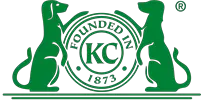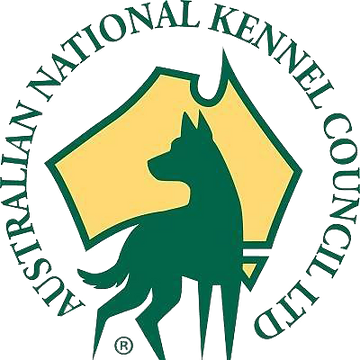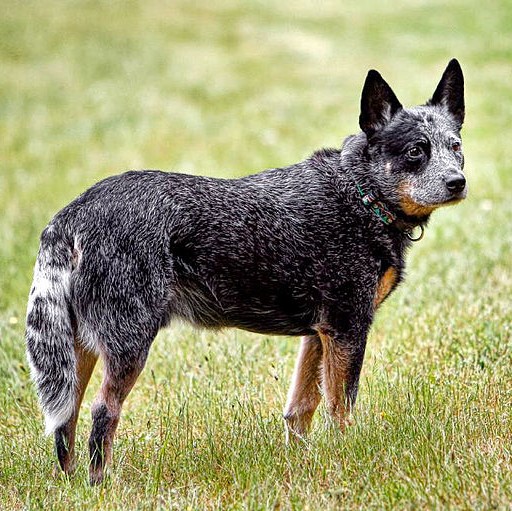Australian Cattle Dog History
The Australian Cattle Dog, or “ACD”, is a working stockdog of the Australian Outback. The ACD was historically a working cattle herding and farm dog in Australia, and is still commonly used as such today. The ACD is nowadays primarily a companion and sporting dog, but retains much of its original instincts and characteristics. The ACD is also known as the “Blue Heeler”, “ heeler” or “Aussie Heeler”. An ACD is a muscular, medium-sized, solidly built, agile, and athletically proportioned animal, with a broad, deep chest, and a deep, wide, slightly arched back. The coat is short to medium in length, dense, and weather resistant. The ACD is a medium-sized, muscular, short-coated, agile, and athletic, with a broad, deep, and slightly arched chest. The body is square and well balanced. The head is wedge-shaped, and in proportion to the size of the body. The muzzle is straight, broad at the nose, and tapers to a blunt tip. The nose is black, except in liver-colored dogs, where it is liver colored. The lips are black or liver-colored. The eyes are medium in size and almond in shape, with dark rims, and set on a medium length, deeply set, not too far apart, and not too rounded, to slightly slanted, facial axis. The ears are small to medium in size, triangular, and erect
Australian Cattle Dog Physical Characteristics
The Australian Cattle Dog is a medium sized, high energy working breed. The Aussie has a solid build and medium sized muzzle. They have a tight, double coat that is either red, blue merle, sable merle, or brindle in color. They have a high set, long, narrow head with pricked ears that fall naturally. The eyes of the ACD are dark brown and the ears are triangular in shape. They have a semi curly, bushy tail that is carried semi-erect. ACDs have webbed toes on their front feet, which helps them swim.
Eye Colors
Blue, Brown, Amber
Nose Colors
Unknown
Coat Colors
Unknown
Height Range
Male Height Range: 18 – 20 inches
Female Height Range: 17 – 19 inches
Weight Range
Male Weight Range: 33 – 40 lbs
Female Weight Range: 31 – 35 lbs
Australian Cattle Dog Health
Description of breed health.
Lifespan
13-15 yrs
Australian Cattle Dog Health Concerns
Deafness, OCD, Progressive Retinal Atrophy, Hip Dysplasia, Cataracts, Lens Luxation
Australian Cattle Dog Temperament and Behaviour
The Australian Cattle Dog is a hardworking, fearless, and independent breed. They are intelligent and quick learners, making them excellent working dogs. They are also very loyal and protective of their family and home. Australian Cattle Dogs are active and need plenty of exercise, so they are not a good fit for a sedentary lifestyle. They can be mistrustful of strangers and may be aggressive toward other dogs if not properly socialized.
Australian Cattle Dog Activity Requirements
Australian Cattle Dogs are herding dogs and were originally bred to work on farms. They are intelligent, driven, and high-energy, and they need lots of exercise and attention. While they can be great companions, they are not always the best match for first-time dog owners. They are very strong-willed and can be difficult to train. They require experienced owners who can provide them with consistent guidance. This breed may not be the best choice for a home with small children. While they are friendly, playful, and loyal, they are larger and more active than other small breeds.
Miles Per Day
Unknown
Activity Per Day
Unknown
Daily Food
2.5 cups
Kennel Club Recognition

American Kennel Club
Recognized by the American Kennel Club
Australian Cattle Dog is part of the Herding group.
Visit the American Kennel Club website.

The Kennel Club
Recognized by The Kennel Club
Australian Cattle Dog is part of the Pastoral group.
Visit the Kennel Club website.

Australian National Kennel Council
Recognized by the Australian National Kennel Council
Australian Cattle Dog is part of the Working group.
Visit the Australian National Kennel Council website.

Canadian Kennel Club
Recognized by the Canadian Kennel Club
Australian Cattle Dog is part of the Herding group.
Visit the Canadian Kennel Club website.
